News and Articles › Contests
Every ambiguous, false, tearful, emotional exaggeration brings about that typically kitsch attitude which could be defined as “sentimentality.”
— Gillo Dorfles, art critic
Top list
View the entire list
The World Wide Kitsch Competition 2017 included many well-crafted paintings and out of more than 70 contestants – the jury selected Li Dong’s work “Black Shadow” to be awarded the first prize.
Li Dong (b. 1962) was formally trained at Lu Xun Academy of Fine Arts in Shenyang the age of 18 where he studied Soviet-style painting. Dong soon interrupted his studies and began to produce posters for a Taiwanese movie company and master copies of painters such as Rubens and Sargent. He has also painted murals for public buildings and hotels in cities like Shenyang, Harbin, Beijing, and Shanghai. Today, Dong is teaching basic painting skills to young students in the district of Hangzhou.
We seized the opportunity to interview the painter following his 1st prize victory in our annual competition.
The figure you have painted resembles the works of Lucian Freud and Andrew Wyeth. Have they inspired your work?
LD: First of all, I admire your sharp eye. The two masters – Andrew Wyeth and Lucian Freud – have had a strong, but subtle influence on me. There is also a mysterious atmosphere in Nerdrum’s paintings, which has infected me since the 1990s. My nostalgic heart has resonated with Wyeth’s work, just as the almost cruel realism of Lucian Freud’s work, has shocked me.
Although Freud’s ironic approach to the human figure is quite different from Nerdrum’s and Wyeth’s figures which seem rather sentimental in comparison?
LD: People get a better understanding of life through sadness, melancholy, and pain. In happiness there is no such thing as compassion. A painter should have a sentimental heart because it is good for work.
How did Chinese painters, like yourself, develop from imitating the Soviet painting style to revitalizing the European Classical Tradition?
LD: Prior to the 1980s, China was an isolated country. Culture and arts were permeated by politics and the standard of painting was the Soviet vision. When China opened up and rebuilt their relationship with the rest of the world, they also discovered traditional and modern culture in Europe, which was all very fresh and peculiar to the Chinese.
Andrew Wyeth’s work received attention in China in the 1980s, due to the Cultural Revolution in the 1960s and 70s when a large number of knowledgeable young people were expelled and forced to work in remote rural areas. The sentiments in his work resonated with them and taught them a delicate style that was different from the simple and crude Soviet imagery. From that moment on there was a boom of Chinese realist painting and many of the well-known painters from that generation are now teaching oil painting at the Central Academy of Fine Arts.
Later on, in the mid-to-late 1990s, Lucian Freud’s work shocked the major art colleges in China.
European culture has indeed had a great impact on China. For the Chinese, realistic oil painting comes from the outside, and there is a huge difference between genres of painting in China. In my opinion, the most attractive part of European traditional realist painting is the expression of exploration and sincerity.
My nostalgic heart has resonated with Wyeth’s work, just as the almost cruel realism of Lucian Freud’s work, has shocked me.
While countries in the Western World are abandoning their cultural heritage – perhaps the Eastern World will preserve it, like the Islamic Golden Age preserved knowledge of the Ancient World?
LD: China is in a state of development with various contradictions both culturally and politically. That said, Western culture cannot advance in the West. Perhaps Westerners have seen too much and are tired, aesthetically. Everyone knows that the Classical Tradition embodies human wisdom which is unparalleled in history. The Chinese are in great demand for culture and with a gradual understanding of the Western tradition, the Chinese can improve their own culture.
How would you describe your own goal in a few words?
LD: I hope that my drawing skills will be able to touch and inspire others.
Which painters besides Wyeth, Freud, and Nerdrum have inspired you?
LD: I greatly admired the Swedish painter, Anders Zorn, when I first became obsessed with painting techniques, but I admire different painters at different times. In recent years, for example, I have looked at Munch, Schiller and Morrow.
Some painters are constant, such as Rembrandt. I have always appreciated his works, and in different periods of my life I have seen the Dutch master in a different light.
My only appreciation among living painters is Odd Nerdrum, whom I am honored to have met in person. His works are as great as the masterworks of history.
What do you think about the re-appropriation of Kitsch as an alternative to Art?
LD: I recently traveled in Europe and visited six countries. During museum stops I noticed a recurring phenomenon. In traditional figurative exhibitions there were many visitors, but in contemporary art galleries – such as the Venice Biennale – there were few visitors and their faces expressed doubt and confusion – even disgust. This helped to deepen my understanding of kitsch, which Maestro Nerdrum has introduced me to.
Everyone knows that the Classical Tradition embodies human wisdom which is unparalleled in history.
But if traditional figurative exhibitions receive a greater audience than contemporary art galleries do – why is it then that contemporary art galleries continue to thrive in Europe and the rest of the world?
LD: The social elite promotes contemporary art and are in the right to speak. They have the right to refer to a deer as a horse. They can arouse people’s enthusiasm and confuse the audience. They say that it is “art” and people think that it is “art.” I can understand that Nerdrum does not refer to his own work as art. In China, however, contemporary art galleries are non-existent.
Published on Tuesday, December 26th, 2017




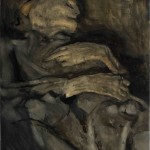
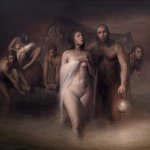
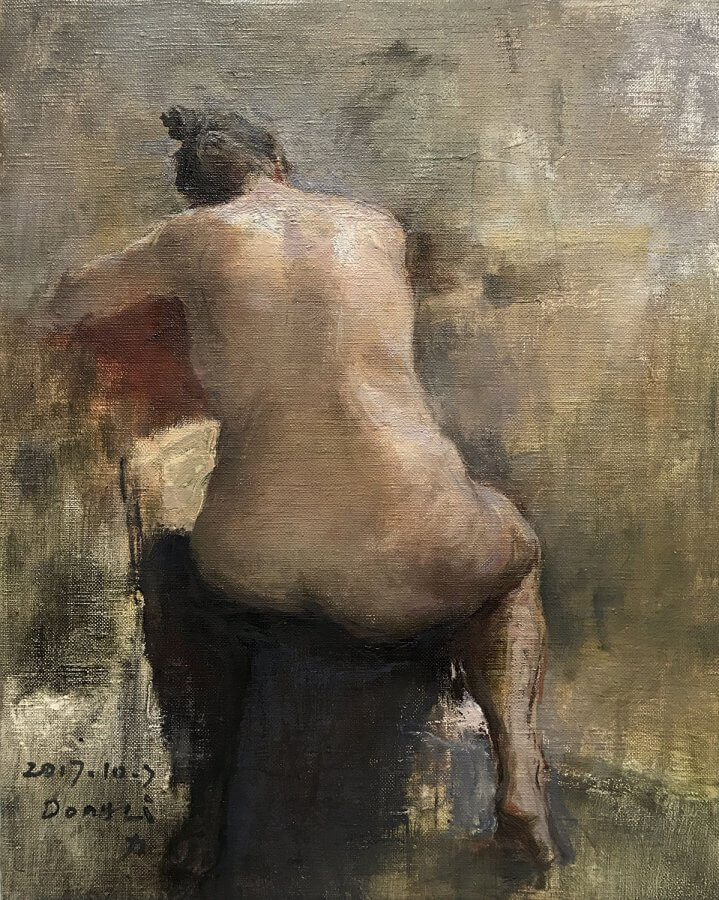
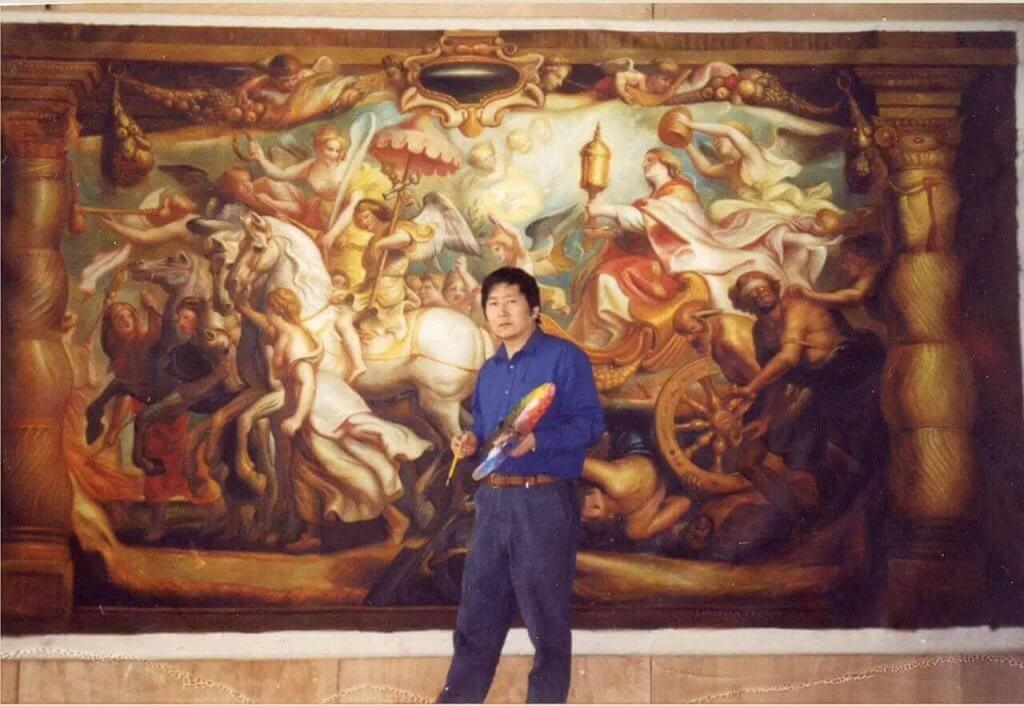

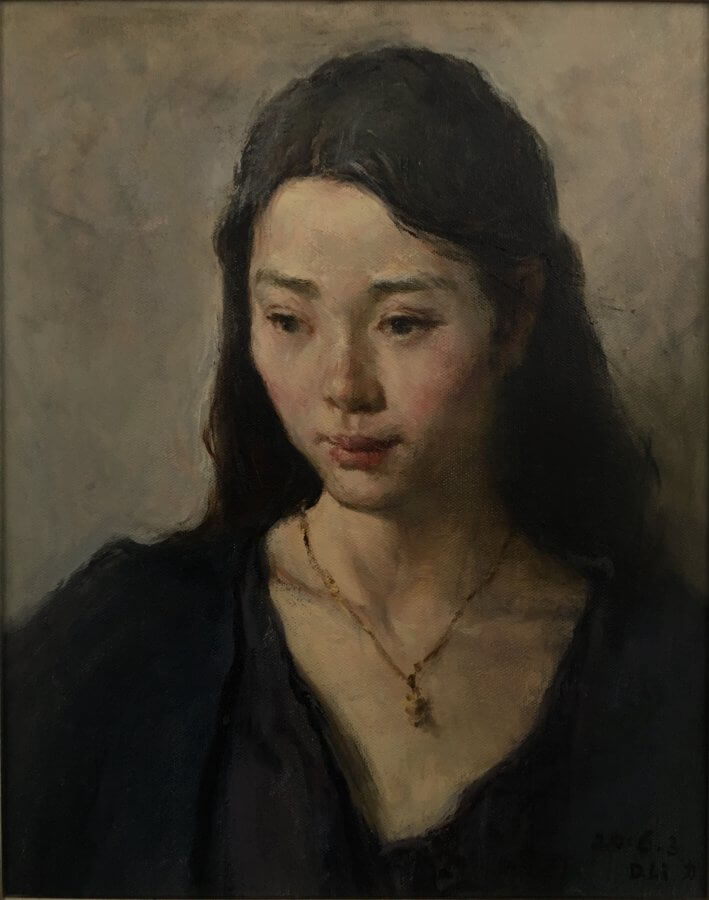
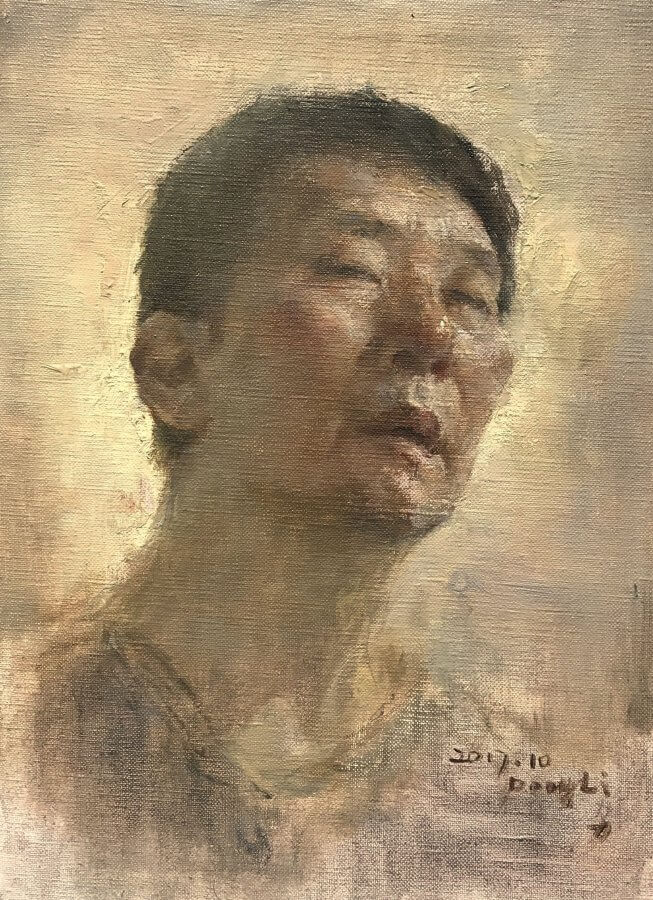


You can write him a comment on his Instagram page. IG: dongli_lidong
I VISITED EXIBITION IN FLORENCE ” CORPO A CORPO” WHERE ONE PAINTING WAS PRESENTED AUTUMN 2019 46 X 61 CM I WOULD LIKJE TO CONTACT THE PAINTER OR TO KNOW IF THW PAINTING IS ON SALE ….MAY SOMEONE HELP ME ?